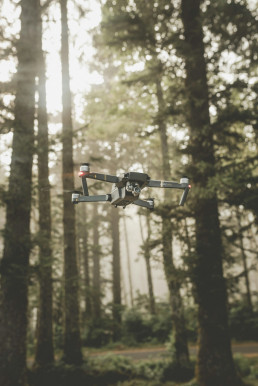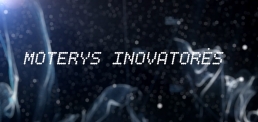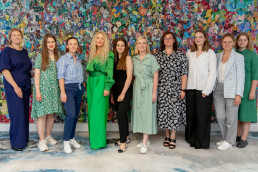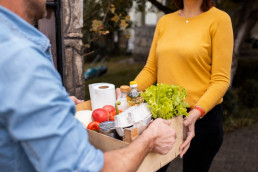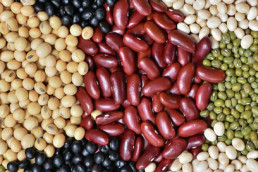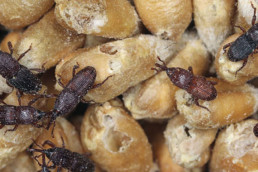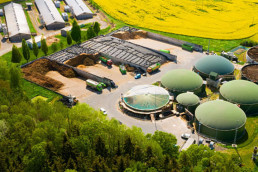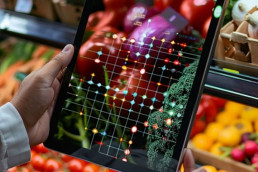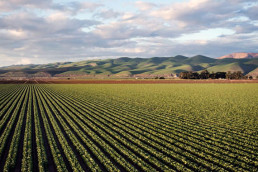ICAERUS is launching its 2nd PULL Open Call
The ICAERUS project is launching the second round of PULL OPEN calls for Farming, Forestry and Rural Challenges on July 8, 2024 with funding available for 6 innovative ideas!
ICAERUS is a project launched July 2022 and funded by Horizon Europe aiming to showcase and support the effective, efficient and safe deployment of drones, as well as identify the risks and added values associated with their use.
The project has issued two types of Open Calls, each with two release dates, providing financial support to third parties as a mechanism for harvesting ideas and datasets from the ecosystem and accelerating the formation of a European network for optimising the adoption of drone technologies in rural areas.
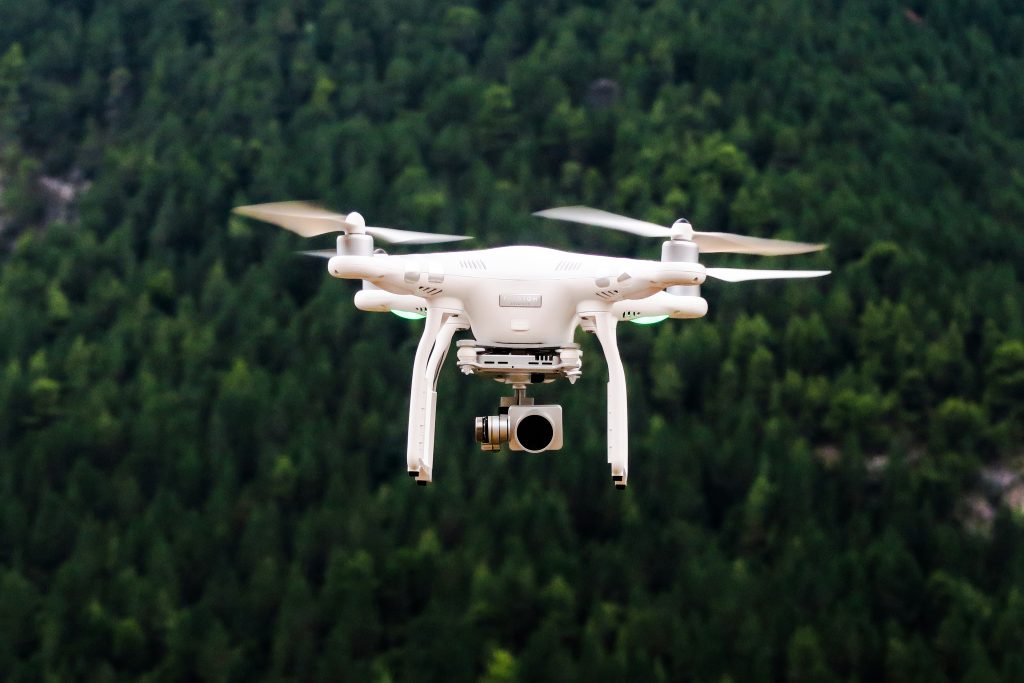
2nd PULL OPEN CALL for Farming, Forestry and Rural Challenges
To do what?
The PULL Open Calls for Forestry, Farming and Rural Challenges will award 6 successful applicants with up to 50,000 € to implement projects aiming to utilise drones and the services built around them for individual commercial needs and/or community-related issues. The following types of applications/solutions (but not limited to) are expected to be funded:
- Applying innovative solutions that leverage drone technology to address specific challenges faced by farmers, foresters, and rural communities.
- Sustainable agriculture, such as using drones to support regenerative farming methods, reduce the use of pesticides and fertilisers, and improve soil health.
- Logistics and supply chain management, such as for transporting goods and deliveries to remote areas, managing inventory and distribution, and monitoring supply chain operations using drones.
- Infrastructure monitoring and maintenance, such as using drones to inspect and maintain roads, bridges and other critical infrastructure in rural areas.
- Energy management, such as using drones to monitor and optimise renewable energy systems such as wind turbines and solar panels (agrivoltaics).
- Water management, such as the use of drones to monitor and manage water resources, including dams, reservoirs and irrigation systems.
- Public safety, such as the use of drones for crime prevention and law enforcement, disaster relief and response, and emergency medical services.
Who can apply?
ICAERUS is looking for agri-food producers, environmental monitoring entities and rural communities who are either SMEs or rural community/cooperative with a valid VAT or relevant registry number within eligible Horizon Europe countries. This include: Member States of the European Union, their outermost regions, and Overseas Countries and Territories linked to an EU Member as well as nationals of Horizon Europe associated countries.More information is provided in the Applicant’s Guide which is available on the ICAERUS website.
Examples of applications eligible for funding:
- Crop monitoring and analysis using drones: Applying software and hardware solutions for the use of drones to collect and analyse data on crops, such as growth rates, yield estimates and pest infestations.
- Precision agriculture with drones: Applying drone-based systems for precision agriculture, e.g., for mapping soil moisture, applying fertilisers and pesticides and managing irrigation systems.
- Monitoring forests and wildlife with drones: Applying drone systems for forest and wildlife monitoring, including habitat mapping, animal tracking and forest fire detection.
- Disaster management and risk reduction using drones: Apply drone-based systems for disaster management, e.g., for search and rescue missions, delivery of medical supplies and providing situational awareness in disaster scenarios.
- Environmental monitoring with drones: Applying drone-based systems for environmental monitoring, e.g., for mapping water quality, measuring air pollution and tracking changes in land use.
- Rural connectivity through drones: Applying drone-based solutions for rural community connectivity, e.g., for providing internet access or communication during natural disasters.
Applicants are encouraged to submit proposals based on their own ideas related to the topic of ICAERUS PULL Open Calls, however in order to be eligible, proposals need to address challenges in Rural Areas.
Timeline
The applications open on July 8, 2024, and closes on October 16, 2024. Sub-projects implementation will be divided into three phases: Design, Development and Market, lasting a total of 12 months, beginning February, 2025.
How to apply?
Register on the Open Call Hub to apply! You can find all of the details for the 2nd PULL Open Call on the ICAERUS website, at icaerus.eu/open-calls/.
Evaluation will be conducted by independent evaluators who will assess the quality of each application including the concept and feasibility, technology readiness and innovation development, Impact and exploitation, as well as organisational capacity and allocation of resources. Full evaluation criteria will be available in the Open Call Kit documents found in the Open Call Hub.
English is the official language for ICAERUS Open Calls. Applications submitted in any other language will not be evaluated. English is also the only official language throughout the whole execution of the ICAERUS project. This means all requested contributions must be submitted in English to be eligible.
Points of contact
For all the information related to ICAERUS Open Calls please state your question on the FAQ section on the ICAERUS Open Call Hub page opencallhub.eu or contact us at icaerus@opencallhub.eu.
“Women innovators”: watch the interview with K. Šermukšnytė-Alešiūnienė
Rasa Tumaševičiūtė, analyst of science, technology and innovation policy, creator and host of the documentic show “Women Innovators”, interviews Kristina Šermukšnytė-Alešiūnienė, CEO of AgriFood Lithuania. What made her decide to be a female leader in a field still dominated by men? How came the desire to build the future by tackling key challenges and collaborating at national and international level? What concrete actions can we take to make the Lithuanian agrifood sector a priority? Insights on these and many other interesting topics are coming soon.
https://www.youtube.com/watch?v=n-iXSn8LWRY&list=PLUXbGUSqnN1j7G6u8gwX6UXAfI4z_qRE2&index=4
Another EWA edition: top female innovators will compete in 2024
Women’s role is crucial for agrifood innovation and sustainable development, but there are still too few opportunities for them to show leadership in the sector. EIT Food’s EWA - Empowering Women in Agrifood programme aims to change this situation and promote the potential of innovative, entrepreneurial women to be at the forefront of future-changing solutions. On 25th of June, it officially launched for the third time in Lithuania. Innovators will have six months to work with experienced mentors for personal growth, idea purification or startup strengthening. The best ones will also receive cash prizes.
The standard of applications never set higher
EIT Food is supported by the European Institute of Innovation and Technology (EIT), a body of the European Union. In our country, AgriFood Lithuania, a cluster and digital innovation hub, traditionally coordinates the project, initiated by the world’s largest and most dynamic food innovation community.
The growing number of candidates reflects its success and the need for it: while 20 women expressed their interest in becoming part of the EWA in 2021, this year almost 50 women applied. Moreover, the majority of applications were very strong. For this reason, according to Kristina Šermukšnytė-Alešiūnienė, CEO of AgriFood Lithuania and EWA Lithuania Ambassador, a competent jury of external experts and EIT Food representatives faced a challenge in selecting the top ten.
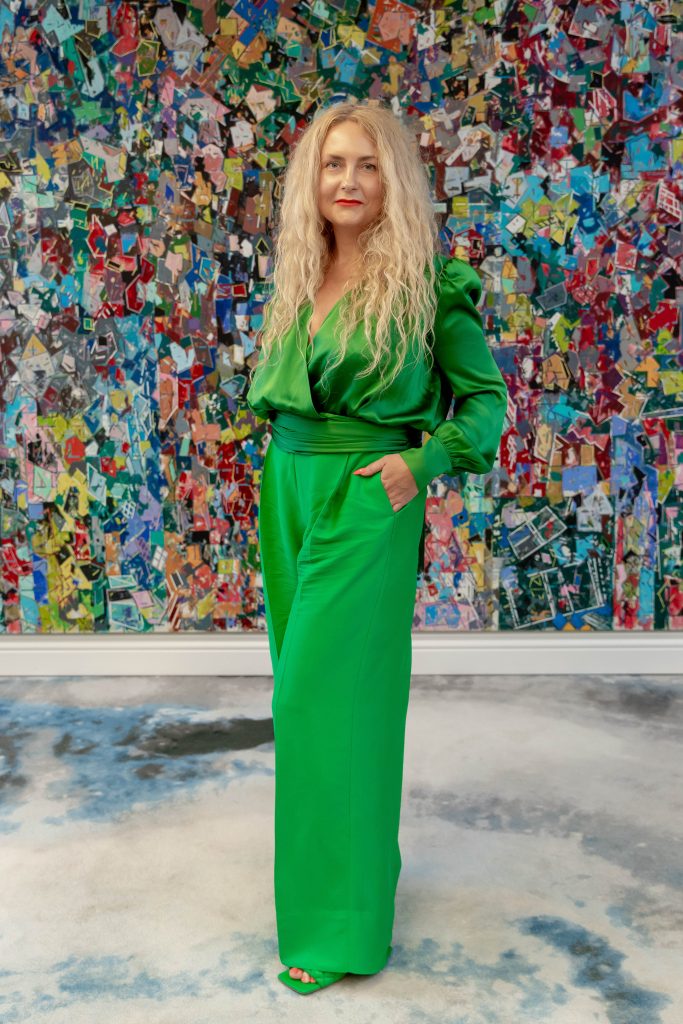
“For the shortlisted, I wish you to make the most of this extraordinary opportunity and keep your motivation for the next stage: grow your knowledge, know-how, personal confidence and ambition. The experience of previous years shows that for everyone who puts in enough effort, the programme can be a fatal stepping stone to success, even if they do not win a prize”, motivated K. Šermukšnytė-Alešiūnienė at the opening event the new EWA mentees.
Agnė Vaitiekūnaitė, Viktorija Šiukščiūtė, Aistė Leonaitienė, Božena Lazovska, Inga Matulytė, Ugnė Dirdaitė, Paulina Jonutė, Greta Budreikė, Ingrida Kuprevičiūtė, Urtė Raubytė have become participants of the EWA 2024.
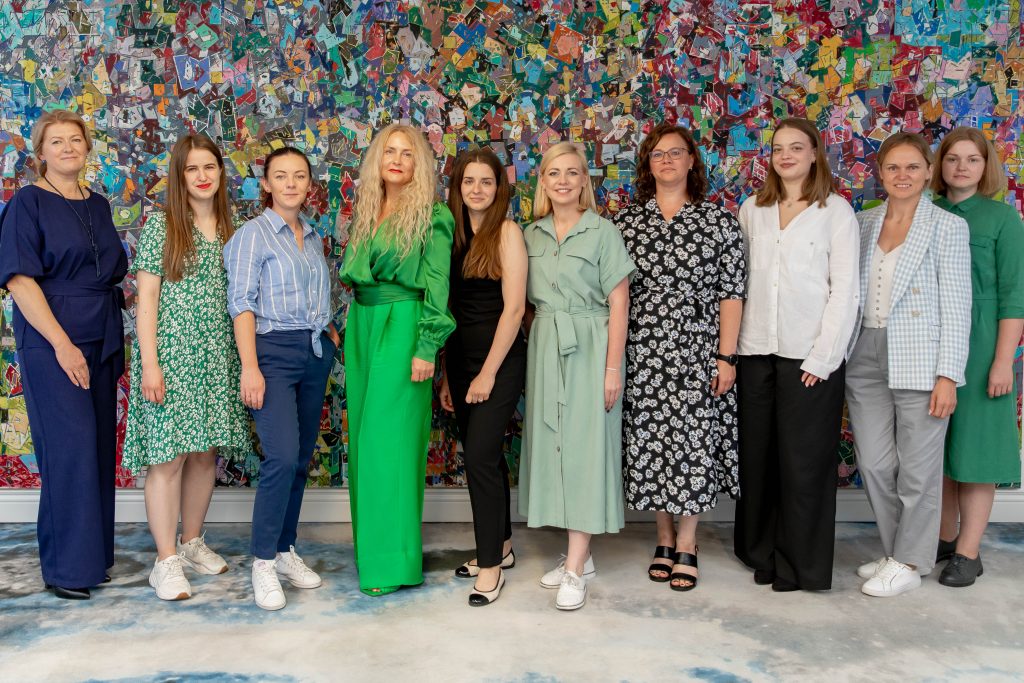
Mentorship of business, science, and public sector professionals
The organisers of the programme invited women from all over Lithuania to a festive start at the Pacai Hotel in Vilnius. Here, they received detailed information about the EIT Food community, got to know each other and the experts accompanying the programme, and presented their ideas more broadly. After the general meeting, the first active personal matchmaking session with their mentors started.
The team of experts was formed according to the skills and knowledge that the participants wanted to acquire. All professionals are leaders in their respective fields and willing to share their expertise and practical guidance for women who seek to implement innovative ideas.
The mentors will include Jelena Ramanauskienė, Head of Administration at Kauno Grūdai, Eglė Vaičiūkynaitė, Assoc. Prof. of Practice at the KTU School of Economics and Business, Co-founder and CEO of Neuromarketing & AI Lab in California (US) and Vilnius (Lithuania), dr. Aistė Balčiūnaitienė, Senior Researcher at Lithuanian Research Centre for Agriculture and Forestry, CEO of Biofita, Director of Varėnos Pienelis Jolanta Kuzminienė, Lecturer at the VU Business School Inga Juozapavičienė, CEO of Sibena (Vikonda Group) Gintarė Alčiauskienė. Also, Ignas Šlapkauskas, EIC Programme Manager of the Lithuanian Innovation Centre, Justas Stanys, Business Development and Innovatios Manager at Kauno Grūdai, Algirdas Augustinas, COO of Vikeda, and Elmantas Pocevičius, CEO of Švenčionių Vaistažolės & Acorus Calamus, Head of R&D Department at Vision DEM4 Laboratory, VU lector.
For six months, the EWA participants will develop their entrepreneurial ideas with the help of the above-mentioned experts, and in November, they will present their progress at the AgriFood Forum 2024. Those three who have shown the most progress will share 18,000€, which will help them to successfully develop their young business. Kauno Grūdai, the partners of the programme, have founded a cash prize for the third place this year.
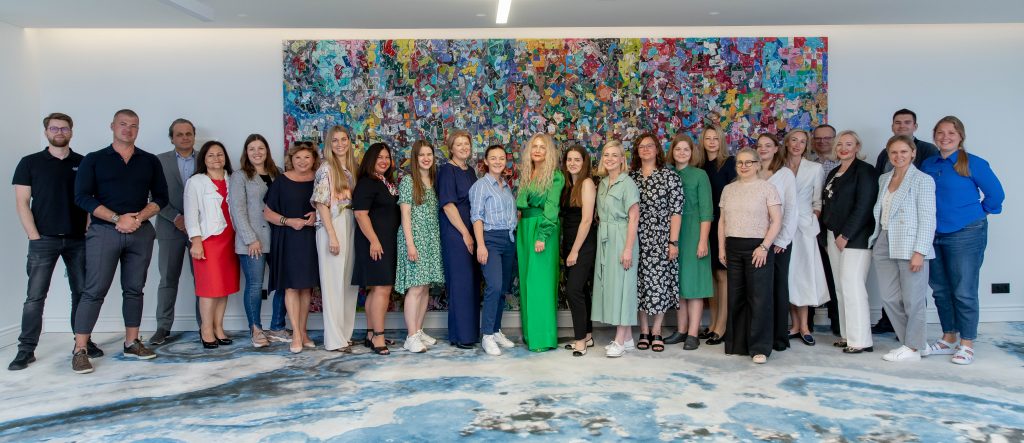
Are you a farmer? Apply for testing tool for agrifood sustainability and social impact
The SOULFOOD project, or “Digital Solutions for a More Sustainable, Inclusive, and Connected Agrifood Value Chain”, aims to reduce food waste, enhance agrifood sustainability, and improve the distribution of products to vulnerable groups through innovative technologies. The developed digital solution will help manage and repurpose food losses through community initiatives. Lithuanian agrifood producers interested in testing it can apply from June 11 to 26, 23:59.
Transitioning to more sustainable production and consumption models in the food sector is a crucial social challenge that must be addressed to ensure Europe meets its goal of halving food waste by 2030. In 2020, more than one in five people at risk of poverty (21.7%), and 8.6% of EU citizens could not afford a meal with meat, fish, or a vegetarian equivalent every second day. At the same time, the European agrifood sector still faces a significant issue of food waste.
Technology is beneficial to every farmer
Farmers testing the tool will have the opportunity to reduce not only their food waste but also associated CO2 emissions and water usage as well as try out more sustainable and efficient production practices. Another key benefit is digitizing different activities (from inventory to distribution) on one platform. New collaboration opportunities between local producers and community organizations will open up prospects for business growth and social impact.
Besides, the platform will provide valuable insights into sustainable practices and agrifood producers will participate in training - educational activities are crucial for raising awareness about food losses. The program is intuitive and designed for ease of use, allowing for the preparation of reports and analyses, enabling data-driven decision-making to improve resources management and operations.
On the platform, producers can offer support, specifying details such as product name, weight, volume, or perishability, while recipients and carriers can accept it. Notifications will be sent by email for each status change in food donation: confirmation, transportation, or delivery. This combination of functions will not only optimize local producers’ operations but also promote their social responsibility and contribution to communities.
Who can apply?
To be eligible for this call, you should be an enterprise or self-employed worker with an agrifood economic activity with up to 100 employees and have all necessary administrative permits. Applicants should be agrifood producers in one of the categories covering non-perennial and perennial crop growing (NACE codes A1.1 and A1.2 respectively).
The place of registration must be Lithuania. Finally, all applicants will need to submit documents proving that individuals are properly registered with the state treasury and social security system, and legal entities are properly established and registered in the relevant public register.
Selected participants commit to using the digital tool throughout the testing period, adhering to project and contract provisions. Also, designate a person to lead the communication between the applicant and the SOULFOOD consortium. They will also be required to provide the information requested by the partners of the initiative to ensure compliance with EC request or direction related to the proper management of the tested solution.
Six farmers in Lithuania will be invited to test the innovation. Half of them will test the technology in the summer and autumn seasons, the other three in the spring. Each will receive a payment of €1,500 to fulfill the requirements, with split pays in November 2024 and upon project end. The official language of the applications is Lithuanian. If you are interested and would like to participate, please contact edita@agrifood.lt and note that the call closes on 26 June. Below you will find the documents you will need to submit:
- SOULFOOD OPEN CALL ANNOUNCEMENT FOR AGRIFOOD PRODUCERS
- ANNEX I. CALENDAR OF THE CALL OF PRODUCERS
- ANNEX II. AGRIFOOD PRODUCERS APPLICATION FORM
- ANNEX III. EVALUATION FORM
- SOULFOOD OPEN CALL RESULTS
Image was designed by Freepik
Valereco
VALERECO is a new project funded under the Horizon Europe Program. The project brings together a diverse consortium of 15 partners from 11 countries and officially commenced with a successful Kick-Off meeting in Athens, Greece.
During the kick-off meeting on 17 and 18 June 2024, a public launching event was hosted to present and raise issues related to the project’s goal, such as productive, climate-neutral, environment-friendly, and resilient farming systems.
VALERECO aims to highlight legumes' often overlooked benefits and encourage their integration into cropping systems, supporting environmental sustainability in agricultural productivity.
The primary objective is to promote understanding and adoption of legume crops in agriculture by quantifying and enhancing the environmental and economic value of the Ecosystem Services (ES) offered by legume crops. The project will promote farmers' and agricultural advisers' knowledge and capacity to include eight major and four minor legume crops in their cropping schemes while raising awareness of the positive ecological and economic impact.
As Prof. Ilias Travlos, the project coordinator, states that “in the era of biodiversity loss, climate change and food safety at risk and given the present spotlight on legumes on EU research and policy, our ambition is to valorize legumes and their ecosystem services and to suggest and evaluate realistic and sustainable ways of legumes’ inclusion into diverse cropping systems”.
Why Legume Ecosystem Services are important?
Incorporating legumes into cropping systems offers significant benefits, including improved soil health, enhanced biodiversity, and reduced need for synthetic fertilizers. However, many farmers often underestimate or are unaware of these benefits.
VALERECO will deliver and measure the important ES provided by legumes in different cropping systems. This includes major crops used for food or feed, as well as subsidiary crops like cover crops or living mulch. The project will assess three major pulses (soybean, pea, chickpea), five major forages (vetch, clover, white clover, red clover, lucerne), one minor forage (sulla), and three minor grain legumes (lupins, faba bean, lentil). These can be both annual and perennial and may be grown alone or in combination with other crops.
VALERECO adopts a comprehensive approach, summarized as Identify - Valorize - Disseminate legume Ecosystem Services (ES) to provide the knowledge, resources, and innovative solutions required for effective legume cultivation. This approach involves:
- Identification: Conducting thorough analyses of existing ecosystem services and exploring ways to integrate legumes into the new Common Agricultural Policy (CAP).
- Valorization: Establishing nine (9) Living Labs (LLs) across six (6) European countries to promote legume adoption through behavioural design strategies, participatory trials, and the demonstration of technical and economic solutions.
- Dissemination: Creating a Digital Legume Information Hub (DLIH), a Decision Support System (DSS), and an E-learning platform to enhance knowledge transfer and support decision-making for farmers and advisors.
VALERECO engages multiple stakeholders, including farmers, agricultural advisors, researchers, industry stakeholders, policy makers, and consumers, in co-creation activities and demonstration events to showcase the potential of legumes-based diversified farming systems in VALERECO LLs. In addition, it will provide policy recommendations and work closely with national and international projects, networks, and organizations to ensure that the capacity-building material reaches a wide audience and can be scaled up.
Partners:
- Agricultural University of Athens
- Burgundy School of Business
- Delphy
- University of Coimbra
- Foodscale Hub
- Institute of Field and Vegetable Crops
- Leibniz University Hannover
- Stichting Wageningen Research
- Instituto Navarro de Tecnologias e Infraestructuras groalimentarias
- AgriFood Lithuania DIH
- University of Florence
- University of Pisa
- AgFutura Technologies
- Scuola Superiore Sant'Anna
- Helvetas
Project website: https://valereco.eu/

IPMorama
The overall objective of the IPMorama project is to deliver a more sustainable food production system. It will be a major driver to reduce pesticide usage in conventional agricultural systems, and to enable the viable expansion of organic systems to one quarter of all agricultural production in the EU. This will be achieved by development of a “practice ecosystem” that supports the breeding, deployment and uptake of varieties that are designed to underpin Integrated Pest Management (IPM) approaches for important diseases/pests in wheat, potatoes and grain legume species (soybean, white lupin and pea) in Europe.
IPMorama is intentionally rooted in the starting point of current mainstream and emerging practices for variety-based disease and pest control, on the basis that the lead-time to effective impact will be minimised by building on this foundation. Farm-2-Fork timescales for pesticide reduction (targeting 2030) are ambitious, and even more so for the concept of using varietal resistance as a key component, since most breeding systems have a combined selection and product development cycle of over ten years. Thus, whilst we envisage many valuable approaches for varietal contribution to IPM in the future (e.g., greater compatibility with the soil microbiome and companion species), the “first wave” of effective strategies needs to be heavily rooted in the current system. The IPMorama approach seeks to initiate this first wave for its target crop/pests, and act as a model for other similar crop/pest systems in which similar starting points exist.

4growth
The objective of 4Growth is to understand where, how and to what extent digital and data technologies in agriculture and forestry are being adopted. It will do so by collecting a wide range of ground truth data via distributed observatories across Europe and identifying key factors or constraints for uptake. 4Growth will showcase the uptake through the “4Growth Visualisation Platform” that will combine powerful storytelling with advanced visualisation of market data. This will contribute to a deeper knowledge of what influences market adoption, which in turn will allow 4Growth to develop robust forecasts to guide policymaking and increase further uptake.
Approach
- Observatories: One of the core elements of the 4Growth approach is the collection of “ground truth” data via distributed observatories. 4Growth will gather and analyse data via 7 observatories across Europe.
- State-of-the-art analysis: 4Growth will carry out a comprehensive state-of-the art analysis to understand the level of development and implementation of digital technologies in the agriculture and forestry sectors, primarily focusing on Europe.
- Market Forecasting and Foresight: Through an analysis of technological, economic, societal, regulatory, and nature-related indicators, the Market Monitoring and Forecasting Tool will enable decision makers to monitor digital agriculture and forestry markets as well as forecast the future uptake of various digital technologies.
- 4Growth Visualisation Platform: 4Growth will showcase the uptake through the “4Growth Visualisation Platform” that will combine powerful storytelling with advanced visualisation of market data
Partners:
- Agricultural University of Athens
- AgriFood Lithuania DIH
- Aristotle University of Thessaloniki
- CTIFL
- Evenflow
- Foodscale Hub
- Future Impacts
- ILVO
- INTIA
- LE Europe
- Vizzuality
- VTT
- Wageningen University & Research
Project website: https://4growth-project.eu/

BioSolFarm
Given the amount of biomass and the land consumption, agriculture has a great potential to contribute to the transition to green energy. By exploring integration of innovative technological solutions with economically profitable models this project contributes to meeting the PO2 and the SO2 increased use of green technologies to lower the pollution discharges to the Baltic Sea, not only from the utilization of the fossil fuels but also from the mineral fertilizer.
The total area of agricultural land in the region is 37 Mha with an average fertilizer consumption of 177 kg/ha that could be replaced with the digestate from anaerobic digestion (AD). Integrative solutions will also contribute to circular bio economy and more efficient economy, either by utilization of biomass for e.g. biogas production, or by installation of solar cells. Biogas and solar energy are complementary energy sources since biogas is produced also when the sun is not shining. A decentralized energy system and improved energy storage at farm level will result in increased safety in energy supply and food production, which today are challenges for animal farms. A special challenge is that many farms are not big enough to face the requirements of AD technology, but with the solutions developed in the regular project, farmers will be able to implement new business models based on best practices, exchange knowledge, cooperate and built networks to jointly face environmental, economic and energy supply challenges
Partners:
- Gdansk University of Technology
- AgriFood Lithuania DIH
- Environmental Technology Network Mecklenburg-Vorpommern enviMV
- Rietavas tourism and business information center
- Pomeranian Agricultural Advisory Center
- Lithuanian Food Exporters Association (Litmea)
- University of Rostock

SOS-Food
In the current environmental emergency, the food system has to become more productive, inclusive, sustainable, and resilient. SOSFood will therefore use data-exploitation and AI-based technologies to provide a holistic and comprehensive image of the EU food system and develop tailored predictive tools to support well-informed decisions of all stakeholders of the food chain, with a multi-factorial, multi-actor and multi-scale approach, thanks to its multidisciplinary consortium of experts, from private and public sectors, academia research and food system representative (consumers, producers and industries). Although several initiatives have been taken in the same line, none has fully succeeded at considering the global picture of the system or delivering a reliable and accessible message to the target audience.
Hence, SOSFood will result in a consolidated food data space focused on sustainability and health and decision-making tools adapted to each level of the chain (a predictive dashboard displaying data and predictions for industries, and a mobile app for consumers comprising an eco-healthy fingerprint visualization plot, a greening indicator of industries, reformulated European recipes promoting healthy, local and seasonal ingredients and general recommendations), following these steps:
- Creating a multi-actor network gathering social, political, legal, economic, technological, food, health, environmental and climatic data, promoting transparency and data-sharing;
- Mapping the food system scenario with a multidimensional strategy, exploiting the interoperability of data with advanced impact analysis and innovative AI-technologies;
- Co-designing solutions i.e., decision-making tools fitting the context and priorities of each user, validated through field case studies to ensure viability and representativeness.
Partners:
- Universidade de Vigo
- Universidade de Santiago de Compostela
- Stichting Radboud Universiteit
- Universita Degli Studi di Ferrara
- Universita Cattolica del Sacro Cuore
- Universidade Nova de Lisaboa
- Asociación DIH Datalife - HUB de innovación dixital Datalife
- Agrifood Lithuania DIH
- Smart Agro HUB anonymi etairia
- Softeam
- JIBE company BV
- Contactica SL
- Ignacio de las Cuevas SA
- Vikonda grupė, UAB
- YIOTIS anonimos emporiki & viomixaniki etaireia
- Communaute Europeenne des Cooperatives de Consommateurs
- Axencia galega de desenvolvemento rural
Project website: https://www.sosfood-project.eu/

Sixfold
SIXFOLD unites partners from the ‘Smart Sensors 4 Agri-food’ Partnership, and its network of Living Labs with a clear aim, Stimulating innovation experiments in food processing live demonstrators.
The twin transition stands at the heart of the Green Deal and Farm to Fork strategy. The agri-food sector plays a critical role in the realisation of these ambitions. The nature of deep tech innovation also shows the need for a transition via responsible regulatory frameworks. Living Labs are looking for more experimentation by engaging societal stakeholders and addressing innovation barriers experienced by agri food companies. SIXFOLD aims to facilitate implementation of deep tech within the agri-food sector, by building a robust network of Living Labs across the EU. This network will support a dynamic and regionally embedded ecosystem thriving with deep tech innovations relevant for the agri-food industry such as AI and machine learning, robots and co-bots, biotech, etc. throughout the food system. The timing is critical for agri-food companies to experiment with innovative technologies and collaboration with deep tech innovators.
SIXFOLD builds on an existing framework. Nevertheless, a careful assessment of the current state of play through interviews and study visits is made after which assessed barriers to innovation is tackled by a tailor made co-creation process. This ensures maximum participation of external experts, regulators, and broader societal actors on regional and European levels and in turn generates a more complete and validated Action Plan adapted to real-world needs. The network of Living Labs will in this way facilitate collaborative knowledge exchange by actively engaging stakeholders from various regions and ensuring inclusivity and diversity in participation. Amongst other objectives, the updated Operational Handbook of the network of Living Labs will form the basis of a successful transition towards sustainable food systems across Europe.
Partners:
- Agrifood Capital BV
- Seinajoen Ammattikorkeakoulu OY
- Agrifood Lithuania DIH
- Flanders' Food
- Fundacion Instituto Tecnologico De Galicia
- Technische Hochschule Ostwestfalen-Lippe

Image designed by Freepik


